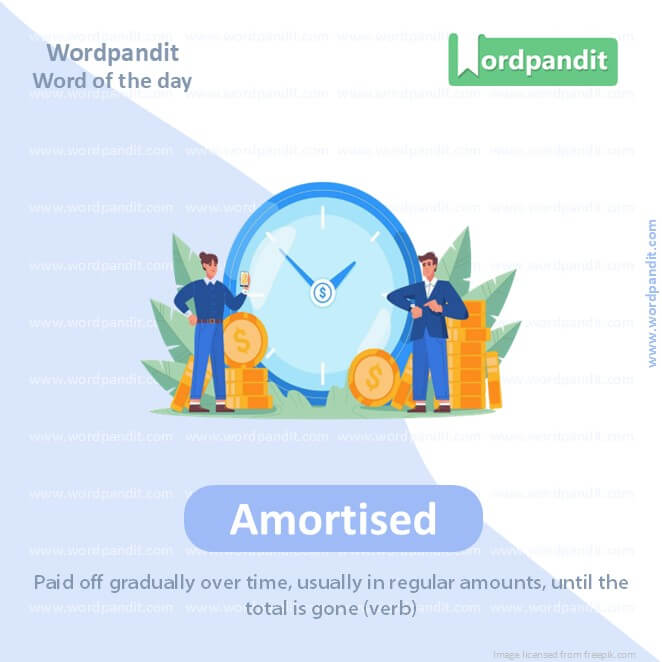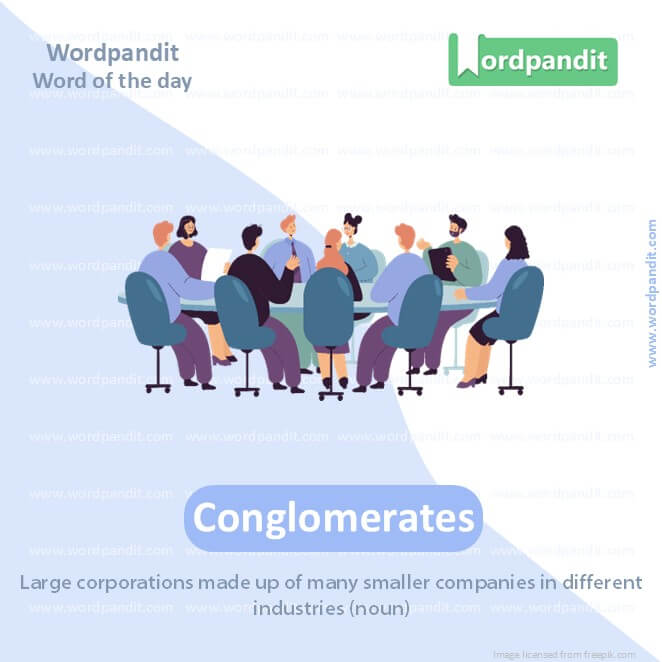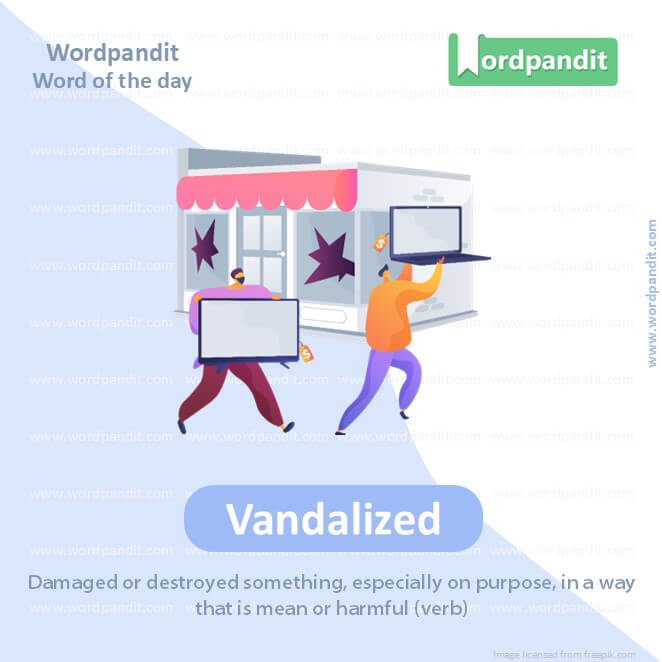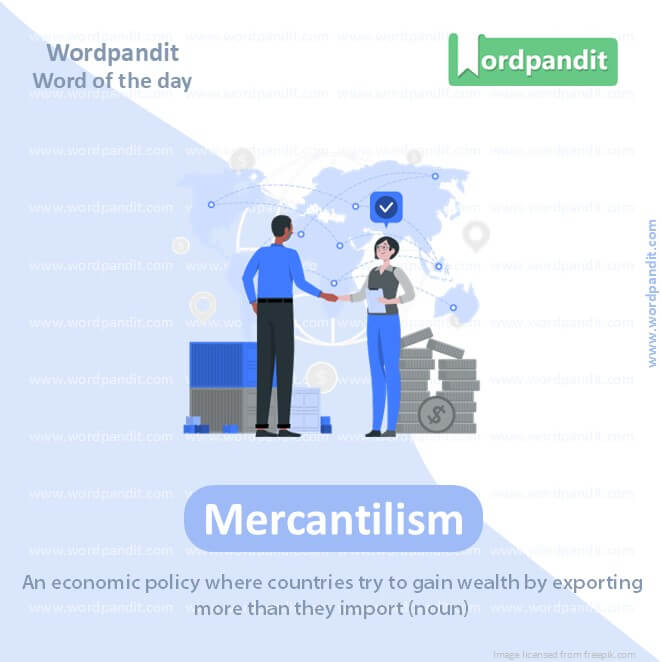Daily Vocabulary Words: Enhance Your Lexicon with Leading Newspapers & Publications
Welcome to the Daily Vocabulary section at Wordpandit!
Our mission is straightforward: to bring you essential vocabulary words featured in top newspapers and publications worldwide. By focusing on words you’ll encounter in renowned sources, we aim to help you enhance your vocabulary effectively and practically.
Our selection includes words from:
– The New York Times
– The Washington Post
– Scientific American
– BBC
– The Guardian
– Psychology Today
– Wall Street Journal
– The Economist
– The Hindu
– The Times of India
– The Economic Times
– Hindustan Times
– Live Mint
– The Indian Express
– And many more.
We are committed to your vocabulary development. Simply visit this section regularly and explore the daily posts. This is your go-to repository for commonly used words, providing significant practical benefits by familiarizing you with vocabulary from the leading publications listed above.
Make it a habit to visit our website daily and expand your lexicon with words from top newspapers and publications.

WORD-1: Amortised
CONTEXT: Ongoing fiscal deterioration and currency debasement risk loss of confidence amongst foreign investors in sovereign debt. There are also limited options for managing these high levels. They can only be amortised from growing income or reduced by inflation.
SOURCE: New Indian Express
EXPLANATORY PARAGRAPH: Imagine you have a big chocolate bar, and you want to eat it slowly over many days instead of all at once. Each day, you eat a small piece. “Amortised” is like that but with money—you pay off a big amount little by little over time until it’s all gone.
MEANING: Paid off gradually over time, usually in regular amounts, until the total is gone (verb).
PRONUNCIATION: uh-MOR-tized
SYNONYMS: paid off, settled, reduced, cleared, extinguished, liquidated
USAGE EXAMPLES:
1. The loan was amortised over 15 years with monthly payments.
2. The company amortised its debt to avoid a financial burden.
3. Her car loan was amortised over five years.
4. The cost of the new equipment will be amortised over time.

WORD-2: Conglomerates
CONTEXT: This raises concerns about if the focus on Scopus truly serves the interests of the academic community or primarily benefits large conglomerates.
SOURCE: New Indian Express
EXPLANATORY PARAGRAPH: Imagine you have lots of different types of toys—cars, dolls, and blocks—and you put them all in one big box. A conglomerate is like that but with big companies, where one company owns lots of smaller, different companies.
MEANING: Large corporations made up of many smaller companies in different industries (noun).
PRONUNCIATION: kuhn-GLOM-er-its
SYNONYMS: corporations, groups, multinationals, mega-companies, enterprises, associations
USAGE EXAMPLES:
1. The conglomerate owns businesses in technology, food, and fashion industries.
2. Several small companies merged to form a powerful conglomerate.
3. The media conglomerate controls several television networks.
4. Conglomerates often have diverse business interests.

WORD-3: Obituaries
CONTEXT: Every day, the names of those killed in Ukraine, their obituaries and photographs from their funerals are published across Russia in the media and on social networks.
SOURCE: BBC
EXPLANATORY PARAGRAPH: When someone goes to heaven, people write a special message about their life in the newspaper to tell everyone about them and remember all the nice things they did. This message is called an “obituary.”
MEANING: A notice in a newspaper or online that tells people someone has died and often talks about their life (noun).
PRONUNCIATION: oh-BICH-u-air-eez
SYNONYMS: death notices, memorials, life stories, tributes, eulogies, death announcements
USAGE EXAMPLES:
1. The family wrote a beautiful obituary to honor their grandmother.
2. I read about his passing in the obituary section of the newspaper.
3. Her obituary highlighted her contributions to charity.
4. The local paper publishes obituaries every Sunday.

WORD-4: Vandalized
CONTEXT: He and his running mate, Sen. JD Vance (Ohio), have already vandalized the city’s sense of community and common purpose.
SOURCE: Washington Post
EXPLANATORY PARAGRAPH: If someone draws on your toys or breaks something on purpose that doesn’t belong to them, that’s called “vandalizing.” It’s when people damage things that aren’t theirs and it’s not very nice.
MEANING: Damaged or destroyed something, especially on purpose, in a way that is mean or harmful (verb).
PRONUNCIATION: VAN-duh-lized
SYNONYMS: damaged, destroyed, defaced, ruined, wrecked, harmed
USAGE EXAMPLES:
1. The playground equipment was vandalized with spray paint.
2. Someone vandalized the school by breaking the windows.
3. The store owner was upset to find his shop vandalized overnight.
4. The police are investigating who vandalized the public park.
WORD-5: Amorphous
CONTEXT: The amorphous nature of sugaring has the potential to leave participants in a state of purgatory. From the Sugar Daddy’s perspective, this dynamic seems optimal – a sure way to secure consistent emotional and sensual investment in a cultural landscape riddled with loneliness.
SOURCE: Psyche
EXPLANATORY PARAGRAPH: Imagine you are playing with a squishy ball of clay that doesn’t have a shape—it can be anything you want, like a snake, a circle, or a mountain. “Amorphous” means something without a clear shape, like the clay.
MEANING: Having no definite shape or form (adjective).
PRONUNCIATION: uh-MOR-fus
SYNONYMS: shapeless, formless, unstructured, indefinite, vague, fluid
USAGE EXAMPLES:
1. The cloud looked amorphous as it changed shapes in the sky.
2. The artist created an amorphous sculpture that resembled a blob.
3. The liquid took on an amorphous form inside the glass.
4. The plan was still amorphous, with no clear direction.

WORD-6: Mercantilism
CONTEXT: Mercantilism and monasticism. This model is not as fantastic as it sounds. It is found even today in many South Indian Hindu temples and can be traced to earlier Jain temples.
SOURCE: The Hindu
EXPLANATORY PARAGRAPH: Think of a big market where people buy and sell things, but long ago, countries wanted to make their markets the biggest and richest by selling more than they bought. This idea is called “mercantilism,” where countries try to get rich by trading goods.
MEANING: An economic policy where countries try to gain wealth by exporting more than they import (noun).
PRONUNCIATION: MUR-kuhn-ti-liz-um
SYNONYMS: trade policy, protectionism, commercialism, economic nationalism, state capitalism
USAGE EXAMPLES:
1. Mercantilism dominated European economic policies in the 16th century.
2. The country adopted mercantilism to boost its economy through trade.
3. Under mercantilism, colonies were important for supplying raw materials.
4. Mercantilism encouraged nations to accumulate wealth through strict trade control.
WORD-7: Emancipate
CONTEXT: Nietzsche’s historical story might therefore help emancipate us from illusions by exposing information that challenges our faith in cherished but unjustified assumptions.
SOURCE: Aeon
EXPLANATORY PARAGRAPH: Imagine if someone tied you up with ropes, and then someone else comes along and sets you free by cutting the ropes. When you’re set free like that, it’s called being “emancipated.”
MEANING: To set free from control or restrictions (verb).
PRONUNCIATION: ee-MAN-si-pate
SYNONYMS: free, liberate, release, unchain, set free, unfetter
USAGE EXAMPLES:
1. The law was passed to emancipate slaves in the 19th century.
2. She was emancipated from her controlling parents at the age of 16.
3. The nation worked hard to emancipate itself from colonial rule.
4. The charity helps to emancipate children from forced labor.
WORD-8: Altruism
CONTEXT: In response, according to Nietzsche, the religious leaders invented a new evaluative framework in which they come out on top – one in which aggressiveness is classified as ‘evil’ and meekness and altruism as ‘good’ – a revaluation of existing values.
SOURCE: Aeon
EXPLANATORY PARAGRAPH: Imagine you have a cookie and instead of eating it yourself, you give it to a friend who is sad. That’s called “altruism,” which is when you do something nice for someone else without expecting anything back.
MEANING: The selfless concern for the well-being of others (noun).
PRONUNCIATION: AL-troo-iz-um
SYNONYMS: selflessness, kindness, generosity, compassion, benevolence, charity
USAGE EXAMPLES:
1. Her altruism was evident when she donated all her savings to the shelter.
2. Acts of altruism can make the world a better place.
3. He showed altruism by volunteering at the food bank every weekend.
4. Altruism is often seen in those who dedicate their lives to helping others.
WORD-9: Remission
CONTEXT: The statute book and introducing a rational and universal remission policy will be a substantive reform in the justice system.
SOURCE: The Hindu
EXPLANATORY PARAGRAPH: Imagine if you had a big bag of chores to do, and someone came and took some away for a while, letting you have a break. That’s called “remission,” where something difficult gets lighter or goes away for a bit.
MEANING: A reduction or disappearance of the signs and symptoms of a disease (noun).
PRONUNCIATION: reh-MISH-un
SYNONYMS: reduction, relief, improvement, abatement, pause, easing
USAGE EXAMPLES:
1. The cancer patient went into remission after treatment.
2. The doctors are hopeful the remission will last for several years.
3. He experienced a remission of symptoms after taking the medication.
4. Her pain went into remission, allowing her to enjoy life again.
WORD-10: Precedents
CONTEXT: In not finding room for same-sex marriages in the Special Marriage Act, the Supreme Court misinterpreted the Constitution and failed to look at its own precedents.
SOURCE: The Hindu
EXPLANATORY PARAGRAPH: Imagine if you always eat a cookie after dinner, and that becomes a rule because you did it once and kept doing it. That’s what a “precedent” is—something that happens before and sets an example for what happens next.
MEANING: Earlier events or decisions that are regarded as examples or guides to be considered in subsequent similar circumstances (noun, plural).
PRONUNCIATION: PREH-seh-dents
SYNONYMS: examples, models, standards, templates, instances, patterns
USAGE EXAMPLES:
1. The judge’s decision set an important legal precedent.
2. We followed the precedent established by previous managers.
3. The company policy is based on past precedents.
4. Her actions broke with the precedents set by her predecessors.













